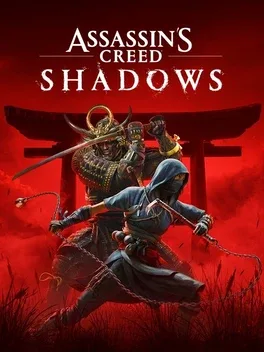Giovanni Colantonio
This author account hasn't been claimed yet. To claim this account, please contact the outlet owner to request access.
Writing For
Latest Reviews
South of Midnight is a weighty adventure that pays tribute to the deep South with astonishing art, impeccable sound design, and the best music you’ll hear in a video game this year. It’s an emphatic journey about connecting with our most vulnerable neighbors when they need it most rather than leaving them to suffer alone. The artistic craft on display is unimpeachable, though the full package is weighed down by the demands of a big genre game that Compulsion isn’t fully able to keep up with.
“Atomfall tries to blow Fallout to pieces with new ideas, but fizzles out instead,”
“Assassin's Creed Shadows finds peace and quiet amid a flurry of repetitive violence.”
If John Cena’s recent move to the dark side has taught us anything, it’s that no babyface is immune to a heel turn. That’s an inevitability that I fear 2K games are setting us up for with WWE 2K25.
I had just spent a year fighting to push back a spreading political ideology that threatened to hurt my loved ones and countless more. Every day felt like a battle against a rising tide of hatred. The constant effort culminated in crushing defeat at the ballot box. By the time January rolled around, I was despondent. There was no fight left in me and it felt like there never would be again.
Split Fiction is hokey, muddled, and needlessly self-defeating. It’s also lively, inventive, and so earnest that it’s hard to be mad at it for long. These aren’t opposing forces that tear Hazelight’s latest apart; the clumsiness is inseparable from the delight. Both are born from the ambitious vision of artists who still believe in the magic of creativity and are willing to take big swings in its honor. Sometimes it absolutely whiffs. We all do. Fail again. Fail better. But it’s those moments where it connects, where simple ideas turn into unforgettable spectacle, that remind us why art can’t be automated. Even the most advanced machine can never dream bigger than a human with a heart.
Monster Hunter Wilds balances spectacle and familiar routine to create the ultimate chill out game.
“Like a Dragon: Pirate Yakuza in Hawaii is fun bottle episode that's a bit too invested in its schtick.”
If I had to design the perfect fate for Koei Tecmo’s cast of Musou heroes, it would probably look like Warriors: Abyss. I mean let’s face it: These folks aren’t going to the good place. No matter how well-intentioned their crusades have been, the stars of Dynasty Warriors and Samurai Warriors have killed millions of people apiece at this point. It only seems fitting that they’d wind up in Hell, forced to fight an endless, tedious war on demonkind.
Citizen Sleeper 2: Starward Vector, the sequel to 2022’s indie critical darling, kicks off in a high-stakes fashion that I wasn’t prepared for. Rather than hiding out on The Eye and quietly trying to survive, I’m immediately on the run. Terrified that I’ll be caught if I stay on any one planet too long, I begin to make hasty decisions that leave me in a deficit. My energy depletes, I don’t have the chits to maintain my ship, and each of my dice shatters one by one, limiting what I can accomplish in a day. I’m left hungry, stressed, and stranded. With each passing cycle, I sink into despair. How is anyone expected to survive in such an unforgiving world?









